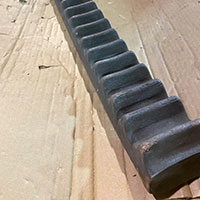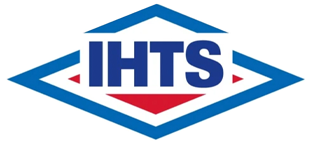IHTS Case Studies

Lean, Integrated Heat Treating For "Field Repairability"
To have “Field Repairability” in a part design and still have the needed strength in the part, the material alloy selected and the heat treating process must be integrated. The designer must select an alloy of steel that is weldable without pre- and post-heating in the field to prevent cracking, and yet still deliver the needed mechanical properties. For example, the alloy of steel used for a forged gear rack must have all the needed mechanical properties – both surface hardness and core toughness – to function reliably after hardening. In addition, the end user of a large piece of equipment where the gear rack is employed must be able to weld a replacement rack on the machine or repair the gear rack component while the piece of equipment is still in the end user’s remote location.
A part designer may choose a 4330 alloy material, for its ability to provide the needed mechanical properties in the middle of the part after quenching in oil. However, a 4330 alloy rack cannot be weld repaired, or replaced in the field, without the need to pre-heat or post-heat the weld to prevent the gear rack from cracking.
If the part designer consults the part forger, as well as the part heat treater, the part can be forged from a lower alloy 4130 steel that is then intensively water quenched to obtain the same required hardness, ductility and higher levels of beneficial compressive surface stresses as the more expensive 4330 material quenched in oil. However, the lower alloy 4130 material does not require pre- and post-weld heating since 4130 can be weld repaired or replaced in the field without cracking. In fact, the higher residual compressive surface stresses on the part gear teeth (if they were not machined off the rough forging) should extend part fatigue life for the lower alloy 4130 part versus the oil quenched 4330 with its higher hardenability. So, the optimal hardening alloy of steel for the intended quench is the less expensive and more weldable 4130.

